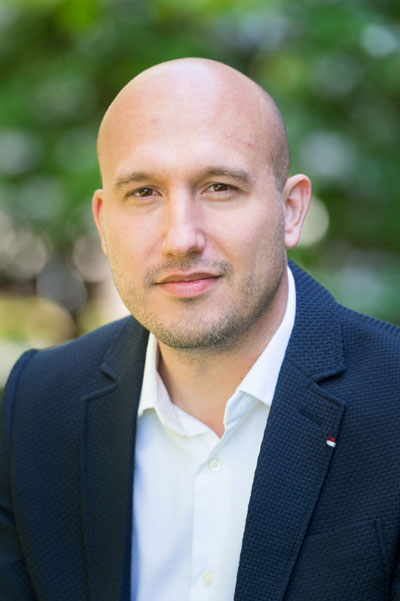 The hydrodynamics of active matter in inhomogeneous environments
The hydrodynamics of active matter in inhomogeneous environments
Speaker: Dr. Gwynn Elfring
Department of Mechanical Engineering, University of British Columbia
When: Mar 28, 2024 | 3:45 PM
Location: CEME Building (6250 Applied Science Lane), room 2202
This is part of the UBC Killam Accelerator Research Fellowship public lecture series.
Abstract:
Active matter is a term used to describe matter that is composed of a large number of self-propelled active ‘particles’ that individually convert stored or ambient energy into systematic motion. Examples include a flock of birds, a school of fish, or at smaller scales a suspension of bacteria or even the collective motion within a human cell. When viewed collectively, active matter is an out-of-equilibrium material. This talk focuses on active matter systems where the active particles are very small, for example, bacteria or chemically active colloidal particles. The motion of small active particles in homogeneous Newtonian fluids has received considerable attention, with interest ranging from phoretic propulsion to biological locomotion, whereas studies on active bodies immersed in inhomogeneous fluids are comparatively scarce. In this talk I will show how the dynamics of active particles can be dramatically altered by the introduction of fluid inhomogeneity and discuss the effects of spatial variations of fluid density, viscosity, and other fluid complexity.
Biography:
Gwynn Elfring is an Associate Professor in the Departments of Mechanical Engineering and Mathematics (by courtesy) and the Institute of Applied Mathematics at the University of British Columbia. His group at UBC conducts research on the fluid mechanics of soft matter systems, including cell locomotion, the mechanics of (active) suspensions, interfacial and membrane rheology, and non-Newtonian flow physics. He has been awarded a Killam Research Fellowship in 2019, an NSERC Accelerator Supplement in 2020 and the Killam Accelerator Research Fellowship in 2021. Previously, he completed a Ph.D. at the University of California San Diego under the supervision of Eric Lauga and postdoctoral studies with L. Gary Leal and Todd M. Squires at the University of California Santa Barbara and was recently a Visiting Associate at the California Institute of Technology.